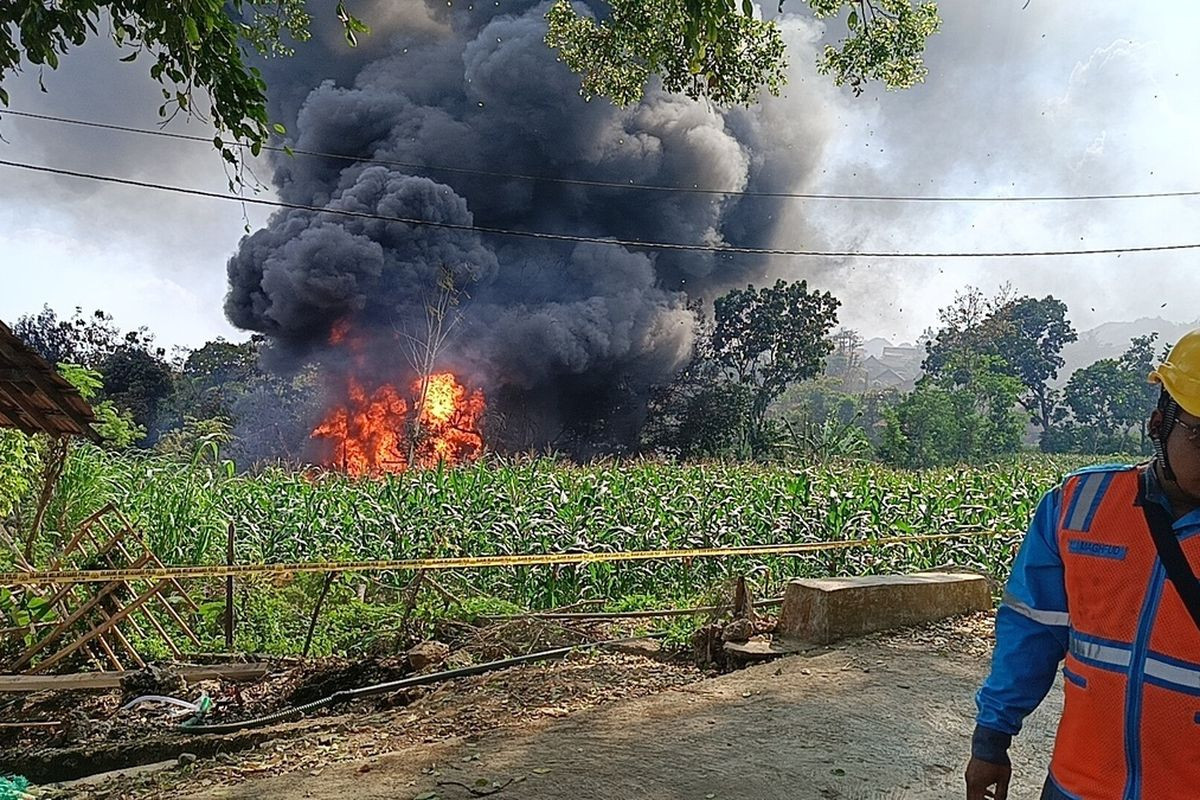
The fire, which started at around 12:30pm local time, was sparked when a community oil well suffered a blowout, Blora Police told local news outlets.
The fire has forced 50 families to relocate. In addition to this, local livestock, including six cows and three goats, were also removed from the area.
Blora is located on Indonesia’s most populous island, Java.
Illegal oil wells have become commonplace in Indonesia, with some local residents drilling for hydrocarbons and others tapping into pipelines.
Multiple fatalities were reported in 2018 after a similar illegal oil well in Indonesia suffered a blowout.
In 2022, there was a reported fatality after an explosion and fire at a traditional oil well in Aceh, Indonesia.
Five were killed in 2012 when locals tried to siphon oil from a pipeline in South Sumatra.
Blora District Head Arief Rohman vowed to crack down on illegal oil wells following the latest blaze.
“The land may belong to residents, but the well itself is illegal. Operators must meet the required criteria. The site was located behind residential homes, so safety and security must be taken seriously,” Rohman said.
While Blora police chief adjunct senior commissioner, Wawan Andi Susanto, said local authorities will “intensify enforcement against these unauthorised wells”.
Rohman urged those seeking to produce oil to go through the correct legal channels in the name of safety.
He said: “Apply for a permit first. Once approved, you can operate legally. This is essential for safety and regulatory compliance.”


